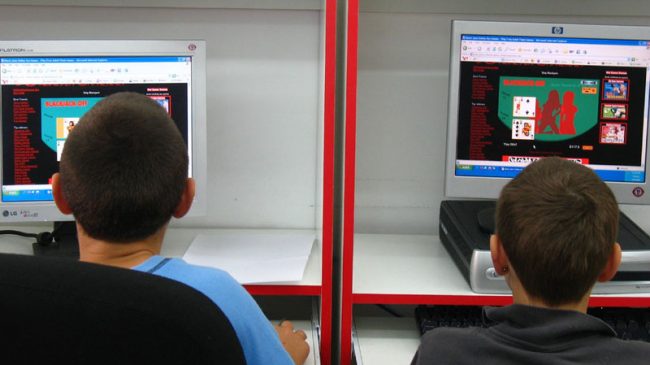From trans fats to poker to plastic bags to e-cigarettes, politicians are out of touch.
When it comes to telling people what they can and cannot eat, drink, smoke, play and do, California and New York seem to be in a race to outdo each other and to ban everything. It was illegal to light your own fireplace in San Francisco this Christmas, while horse-drawn carriage rides soon will be a thing of the past in New York City, if new Mayor Bill De Blasio gets his way.
But, as lawmakers are busy banning everything from plastic bags to tanning beds, the latest Reason-Rupe poll finds most Americans just want to be left alone to make their own choices. The national telephone poll of 1,011 adults finds that majorities of Americans think people should be allowed to smoke electronic cigarettes, play violent video games, eat foods containing trans fats, drink caffeinated energy drinks and gamble in online poker games – activities that California politicians have often attempted, sometimes successfully, to ban.
In one of his last acts as mayor of New York City, Michael Bloomberg signed a law banning the use of e-cigarettes in public places. The Los Angeles City Council wants to do the same, and has already put restrictions on the sale of e-cigarettes. Yet, 62 percent of Americans oppose banning e-cigarettes in public places, the new Reason-Rupe poll finds. In fact, 82 percent of Americans under the age of 35 think e-cigarettes should be allowed in public places, and half of those ages 55 and over agree.
Aiming to broaden the trans fat bans already in place in California and New York City, the Food and Drug Administration hopes to eliminate the use of trans fats, despite public opposition. Over seven in 10 Americans, 71 percent, tell Reason-Rupe that people should be allowed to purchase food with trans fats, while 24 percent think foods with trans fats should be prohibited.
Turning to beverages, San Francisco’s City Attorney sued Monster Corp., a manufacturer of caffeinated energy drinks, last year as part of an effort to limit the marketing and consumption of the popular beverages. But the Reason-Rupe poll shows that more than three-quarters of Americans, 76 percent, don’t think the government should ban caffeinated energy drinks. Just 21 percent of those surveyed support such bans.
Most Americans don’t think the government should prohibit people from playing online poker, either. State Sen. Lou Correa, D-Santa Ana, has been trying to legalize online poker games in California, and the Reason-Rupe poll finds the public is on his side: 65 percent of those surveyed believe adults should be able to gamble in online poker games, while 32 percent oppose allowing online poker gambling.
Whenever there’s an act of violence, you’ll often hear video games being blamed. California State Sen. Leland Yee, D-San Francisco, authored the 2005 California law that banned the sale of violent video games to minors. The Supreme Court overturned the law in 2011. But in 2013, Yee hinted at more video game regulations.
However, the Reason-Rupe poll finds 66 percent of Americans believe people should be allowed to play violent video games, with 31 percent agreeing violent video games should be prohibited.
And in yet another example of California’s nannying, Los Angeles on Jan. 1 became the largest U.S. city to ban large grocers from distributing plastic bags. However, Reason-Rupe found 60 percent of Americans oppose plastic bag bans, with 37 percent in favor.
California lawmakers continually try to control what their constituents can eat, drink and play. But the data shows Americans don’t want to be nannied. Hopefully, lawmakers will ease up in 2014.
Emily Ekins is director of polling at the Reason Foundation. This column originally ran in the Orange County Register.
